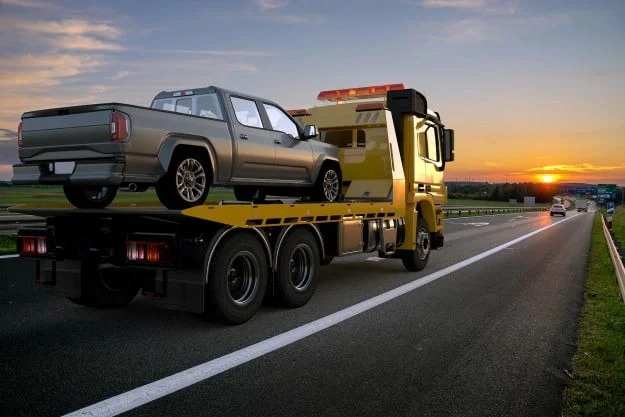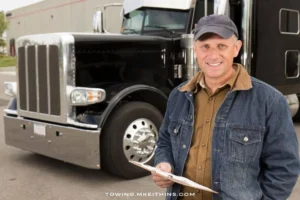No matter their size or industry, businesses require insurance. Towing and recovery are not exempt from this rule. Tow truck insurance is specifically tailored to address the needs and risks associated with a towing business. But as an operation that works with a fleet of commercial vehicles, towing providers need to deal with numerous challenges. They have to deal with the Department of Transportation (DOT) regulations and attain specific insurance requirements if they are looking to work in the tow truck market.
As a type of business owner insurance, tow truck insurance coverage differs from a personal auto insurance policy. It’s necessary for a towing business that provides wrecker services. The Federal Motor Carrier Safety Administration (FMCSA) will also not allow any tow truck and recovery operator to function without the appropriate types of coverage. Both the DOT and FMCSA require proof of liability insurance for the Operating Authority and MC number application. But before we can go any further, we need to understand the circumstances surrounding the towing industry.
The Risky Nature of the Towing and Recovery Industry
Whether they’re dealing with a blown engine, a few loose wheel bearings, or a severe accident, truckers other times feel helpless when their big rig forces them out of the fast lane and onto the other side of the road. Luckily, truck drivers won’t be stranded long as tow truck operators are always on standby to assist them.
In many jurisdictions, tow trucks are considered emergency vehicles. Roadside service providers have a critical part to play in post-accident cleanup and roadside assistance by keeping roads clear of any idle and disabled vehicles. However, there are plenty of everyday risks surrounding tow truck operators, primarily since they work so close to barreling traffic Statistically speaking, a tow truck driver is killed every six days, on average. In the first eight days of 2020, six towing operators were killed across the United States.
Therefore, the towing industry is quite risky to insure, and very few insurance companies are willing to cover the tow truck market. Various states have enacted laws aimed at protecting emergency operators from being injured while on the job. For example, Georgia’s Move Over Law requires drivers to move over one lane whenever possible if an emergency vehicle is parked on the side of the highway. If traffic is too heavy and changing lanes is too dangerous or impossible, drivers must slow down below the speed limit and be prepared to stop.
However, the inherent nature of the job isn’t the only aspect that’s keeping tow truck insurance companies on edge. The spontaneous and often unpredictable daily schedule of a wrecker also has a part to play. Plenty of towing companies are added to towing rotation lists to operate on an on-call basis with state and local law enforcement agencies. While each jurisdiction has its rates and rules, most rotation lists typically require at least $1M in auto liability and on-hook coverage to protect their customers’ vehicles.
Both commercial drivers and tow truck operators have similar needs when it comes to their truck insurance policy. It can include things such as auto liability, physical damage coverage, as well as cargo and equipment insurance. The towing industry has a few differentiating elements that set it aside from others in the commercial auto transportation industry.
For instance, a towing company relies heavily on many specialized tools and equipment to address the various challenges that go into roadside assistance. A full-sized wrecker, alone, can easily cost half a million dollars. And whether there’s an industrial-strength winch or a heavy-duty boom, these high-priced tools will only add to the vehicle’s risk value. And while these state-of-the-art tools and vehicles may cost more upfront, older towing vehicles might end up costing more to insure.
Regardless of the situation, owners should be willing to discuss all aspects of their operation with the insurance company since every detail can affect the commercial auto insurance rates. It can include everything from the scope of duty, on-site repairs, garage and body shop ownership, the safety record of these operations, and more. Any additional services provided aside from towing may also require supplemental coverages such as garage keepers, comprehensive and collision insurance, as well as uninsured motorists, among others.
Who Will Need Tow Truck Insurance Coverage?
Aside from towing and recovery companies, other businesses in need of tow truck insurance coverage include the following:
- Roadside Assistance Companies
- Auto body shops
- Auto Mechanical repair shops
- Auto salvage, recovery, and auction haulers
What Are the Premium Cost Specifics?
The national average monthly cost for basic tow truck insurance was $450 in 2020. That’s between $4,500 to $5,000 per year for a single tow truck used for basic towing and recovery purposes. A general liability insurance policy required by state law can cost a small tow truck business a minimum coverage of between $97 and $159 per month.
Premiums will also depend on a variety of factors. For instance, auto body shops or mechanical repair shops that also operate a tow truck to support their primary repair business will have a national average basic premium cost of around $7,500 per year per truck. If the tow truck also provides repossession services, the average premium cost increases to about $10,000 per truck due to additional risks involved.
What Factors Affect Tow Truck Insurance Rates?
As with most insurance coverages, premium rates for tow truck insurance are calculated based on several factors. Among these factors, we can include the following:
- The Area of Operation – Urban areas with high traffic volumes can result in more frequent accidents. This can result in higher premium rates than operating in a less congested area.
- Hours of Operation – A 24-hour roadside assistance service will typically incur higher premiums than a regular 9-to-5 schedule.
- Type of Tow Trucks – Heavy-duty tow trucks cost more to insure than light-duty towing vehicles. There’s also a difference if the truck is an under lift wrecker or a rollback carrier.
- Type of Services Provided – Insurance rates can also be influenced by the kind of service provided, such as roadside assistance, recovery, repossession, repair, rotation, impound, etc.
- Total Number of Drivers and Their Driving Safety and Qualification Files – Companies with multiple drivers will pay more in premiums than those with fewer drivers. Also, experienced drivers with good driver safety records can lower premium rates.
- Trucks’ Age – The total number and age of your trucks will also affect rates. Older model tow trucks typically have a lower value but can still cost more to insure, because of the increased risk they pose.
- What’s Being Towed – While some towing businesses focus just on vehicles, others also include motorhomes, RVs, motorcycles, boats, trailers, and heavy equipment.
- Safety Program Implementation – Any safety programs implemented within a company will influence insurance rates. Applicable state and federal laws may require businesses to comply with various safety protocols.
- Time in Business – New towing companies may pay more in premiums until they’ve been in business long enough to establish a record of safe operation. The frequency and severity of claims within a specified time, typically 3 to 5 years, are used by most insurance carriers to determine rates.
- Implementation of telematics – GPS Tracking, ECM, ELDs, Automated Event Recorders (AERS)
What Tow Truck Insurance Includes
- Auto Liability – This is one of the standard auto insurance coverage. When at fault in an accident and there is resulting property damage and/or bodily injury, the auto liability will be the one that responds. Additionally, it also pays to defend if the 3rd party involves an attorney.
- Medical Payments – It covers any medical bills up to a limit for both drivers and passengers in, on, or about an insured trailer or power unit.
- Auto Physical Damage – This type of insurance includes comprehensive insurance and collision coverage for power units listed on the policy.
- Uninsured or Underinsured Motorists – If a tow truck is involved in an accident with an uninsured or underinsured motorist, this particular policy will cover any injuries to you, your passengers, and your employees when the 3rd party is deemed at fault. This policy also covers any hit-and-run situations, while in some states, the uninsured motorist coverage also applies to property damage.
- Garage Liability Insurance – It affords coverage when the fault is assessed for property damages and bodily injury.
- Garage Keepers Insurance – Provides comprehensive and collision coverage for customer autos while in the tow and recovery company’s care and control. Subject to deductibles.
- Hired & Non-Owned Liability – Affords coverage when a non-owned or rented power unit, auto, or trailer is used in the business operation.
- On-Hook Towing Insurance – This type of insurance is specifically designed for towing businesses, helping to cover the repair or replacement costs resulting from any damages sustained to “on-hook” vehicles or watercraft that you are towing. This policy typically covers damage caused by collision, fire, vandalism, theft, and other unforeseen accidents to the property of others being transported.
- Cargo Coverage – This type of insurance includes coverage for damage and/or theft of items inside the towed vehicles. Also, this provides coverage for equipment such as forklifts, tractors, and skid steers. This is another coverage that most tow truck companies should seriously consider.
- Commercial Property Insurance – This policy protects your building and personal property in addition to business interruption type coverage when an unforeseen loss happens
What Is DOT Compliance?
Like all other commercial vehicles, tow trucks fall under the Federal Highway Administration and the Federal Motor Carrier Safety Administration (FMCSA). Also, towing service providers are bound by the rules and regulations of the DOT. These rules apply both on a local and federal level and include the following:
Truck Driver Qualification Documentation
Tow truck operators fall under the same federal guidelines as all other commercial tow truck drivers. In the majority of states, tow truck drivers need a commercial driver’s license (CDL). They also need to pass a drug and alcohol test and a background check before operating a wrecker legally. It falls under the responsibility of the employer to maintain these driver qualification files.
DOT Insurance Requirements
Aside from being fully equipped with safety equipment, tow truck operators also need to possess certain permits, licenses, and commercial vehicle insurance coverage. This will protect them and the public from physical and property damage. According to the FMCSA, the auto liability limit is $750K. That said, this may not be enough for tow truck businesses to obtain work with the various roadside assistance networks out there. They may need additional business insurance policies to do so.
Working With Top Roadside Assistance Networks
For many tow truck owners, the most effective, profitable, and straightforward way of getting business is to get a contract with one or more roadside assistance networks on the market. Among the most common such networks include AAA, Agero, Road America, or Waste Management. When applying to become a towing and recovery service provider with these networks, wreckers will need to meet certain comprehensive towing insurance requirements.
With most of these roadside assistance networks, these towing insurance coverages are similar. The biggest differences between them are in terms of limits. While each coverage determines what every insurance policy will cover, the liability limit tells how much the insurance company will pay if there is a claim to be had.
General Liability
Often referred to as business liability insurance, general liability coverage insures businesses for 3rd party injury and property damage. Some roadside assistance networks require that tow truck companies have a $2M per occurrence limit. There’s also a $3M aggregate limit that goes alongside that. This means that the insurance company will have to pay up to $2M per incident and up to $3M throughout the policy period.
Auto Liability
As a type of commercial truck insurance, this policy covers any damages and injuries caused by the driver while operating the company truck. If the company doesn’t own the vehicle, the incident will be covered by the Hired and Non-Owned Auto policy.
The General/Garage Liability limits represent a multiple of the Auto Limit. If, for instance, the Auto Liability Limit is $1M, the General Liability will be $1M per occurrence, with a $2M or $3M aggregate limit. If the auto limit is $750K, the General Liability limit will be $750K per occurrence with a $1.5M or $2.25M aggregate.
On-Hook, Cargo, and Garage Keepers
The auto liability insurance mentioned above will not do a thing when it comes to the vehicle you’re towing and any belongings inside it. This is where the On Hook towing coverage comes in. This type of insurance covers any damages to the client’s vehicle while it’s being towed. Cargo insurance covers any lost, damaged or stolen items found in the vehicle.
The Garage Keepers policy comes into effect once the client’s vehicle is no longer towed and located in your garage or storage facility. This policy, comprehensive and collision, covers any damages while the vehicle is under your control. This policy is subject to deductibles. In terms of insurance requirements, the minimums range between $25K and $150K, depending on the network. Some can even reach as high as $1M.
Workers Compensation Insurance
Workers’ compensation insurance covers tow truck drivers and other employees in the event of an accident. There are legal limits determined by the states. However, tow truck service providers with no employees may not need workers comp.
Certificate Holder
Most roadside assistance networks need their partners to list them as certificate holders. This means that the network will have access to the details and updates of the towing operator’s insurance policies and cancellation notifications.
Additional Insured
By adding the roadside assistance network as an additional insured, they will also take advantage of your insurance coverage. For example, if a vehicle owner were to sue them because of your actions, rather than sue you directly, they would also have access to your coverage. Similar to the Certificate Holder option, the Additional Insured is an option required by most networks.
Getting the Best Deal on Your Coverages
Since every towing company is unique and has its own needs and operations, they also need its own personalized insurance contracts capable of fulfilling those needs. Luckily, towing insurance policies are customizable to fit these business needs.
At Mike Keith Insurance, we can help you find that perfect combination of coverage and rates to protect your towing operation from costly claims. With over 50 years of experience, we are the Agency of Choice for many Tow and Recovery businesses. Our unparalleled service and “A” rated carrier base allow us to provide you with the most reasonable price and best coverage you need. Contact us today; we will review your current program and work together to design a solution that best suits your needs!






